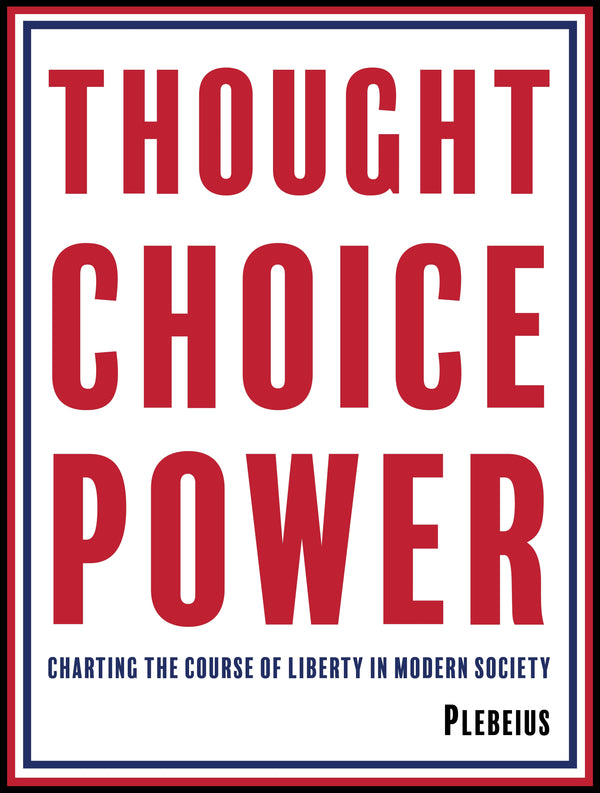Seattle Book Review
Maileen Hamto for Seattle Book Review
During political uncertainty and stark polarization, it is essential to take a step back to evaluate the principles of liberty, justice, and leadership. Writing under the pen name Plebeius, the author of Thought Choice Power shares the author’s reflections on the principles of sound and principled governance. Drawing from the examples of past events and the writings of historical figures such as Theodore Roosevelt, Franklin D. Roosevelt, and James Madison, among others, the author explores the interconnected nature of humanity's pursuit of happiness and freedom.
They boldly present the dangers of allowing greed and pride to corrupt the government and economy, emphasizing the importance of virtues like wisdom, justice, and integrity. This advocacy for competent leadership that prioritizes reconciling differences and upholding ethical governance is particularly relevant in our current societal context. The book makes a solid case for the need for citizens to hold leaders accountable, reclaim their power, and uphold justice and liberty for all.
I read the book from my perspective as a lifelong student of history and a practitioner of integrating social justice principles into leadership systems. I appreciated how the book highlights the critical need for competent leadership in governance, underscoring virtues such as courage, honor, justice, truth, and sincerity. It stresses duty-first leadership over personal gain and warns against neglecting virtues. These are all great reminders for leaders in different systems and institutions.
Education is highlighted as a foundation for societal progress and prosperity. In keeping with this theme, Thought Choice Power showcases sophisticated and formal writing with a deep understanding of political philosophy and historical perspectives on governance and leadership. Because Plebeius uses complex sentence structures and vocabulary, one could surmise that the author’s target audience is cerebral and college-educated.
People who advocate for social justice would benefit from discussions of economic disparities and the inequitable influence of wealthy entities. Plebeius highlights the interconnectedness of education, economic systems, and societal well-being. Readers would benefit from gaining a broader context of influence decision-making processes and work towards countering the negative impact of "monied interests" on society. I appreciated the author’s points about the need to counter the influence of wealthy entities to ensure fairness, liberty, and equality.
The book is excellent for managers, leaders, policymakers, decision-makers, and individuals concerned about societal progress. It provides a deep dive into the importance of ethical leadership, citizen engagement, and the dangers of neglecting responsibilities in governance and the economy. As the United States continues its trajectory toward forward movement, Thought Choice Power can serve as a practical template for how leaders and citizens can use their power to foster a just and prosperous democratic society.
